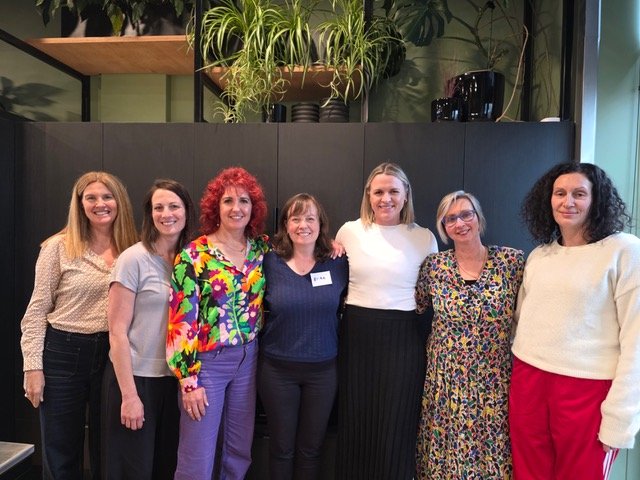
Navigating the changes that occur in this natural biological process for women aged between 45 to 55 with symptoms such as hot flashes, brain fog, night sweats, mood changes and sleep difficulties is not always easy.
About 40 women were present at the conference that also featured break-out sessions and workshops.
Event organiser and exercise physiologist Stacey Pine said it was a successful day filled with camaraderie and comedy.
"It was amazing. We were lucky to have the calibre of the speakers we had and it was really interesting.
"There were real consistent threads throughout the day and everybody was really funny, everyone laughed a lot and the women really connected, which was everything we really had hoped for," she said.
Speakers included GP Dr Erika Hollows, psychologist and comedian Dr Nicola Brown and clinical nutritionist Melissa Smith, with a range of topics that included mental health coaching, better sleep, and facts and myth-busting on nutrition and supplementation.
Mrs Pine said the "immersive" full-day event that she created with yoga teacher Margie Mitchell aimed for attendees to walk away with achievable goals.
"There was so much information and a lot of questions. We didn’t want people to feel overwhelmed and not put anything into practice.
"So we focused on how to leave the day with two tangible goals, such as eating more vegetables every day or to take two minutes to do some breathing exercises to calm stress levels."
The holistic event addressed a variety of aspects of the biopsychosocial approach to menopause including a workshop on pleasure and vulva health, and exercise for pain management.
"We wanted people to go away and kind of reassess their whole lifestyle, because if your stress levels are too high, your HRT won’t even work as effectively because of all your cortisol levels."
While they created the conference specifically for women "to feel safe to share" their own experiences and discuss their issues, Mrs Pine said the "biggest feedback" they received was that men were also really interested in learning more about menopause.
"It’s a really good sign that men are interested, and they want to learn how to support women and understand the biology of what’s going on."
She said they will consider a future workshop that includes men if they run a more general education session.
There was a one-hour panel discussion dedicated to menopause hormonal therapy (MHT) otherwise known as hormonal replacement therapy (HRT), which replaces the estrogen and, if needed, progesterone hormones in the body that it no longer produces, Mrs Pine said.
"Most women visiting their GP only get 15 minutes and they probably need a 90-minute appointment to navigate their way through that system."
The conference was lucky to have the medical knowledge of Dr Hollow and nurse practitioner Marja Captain to call on, she said.











